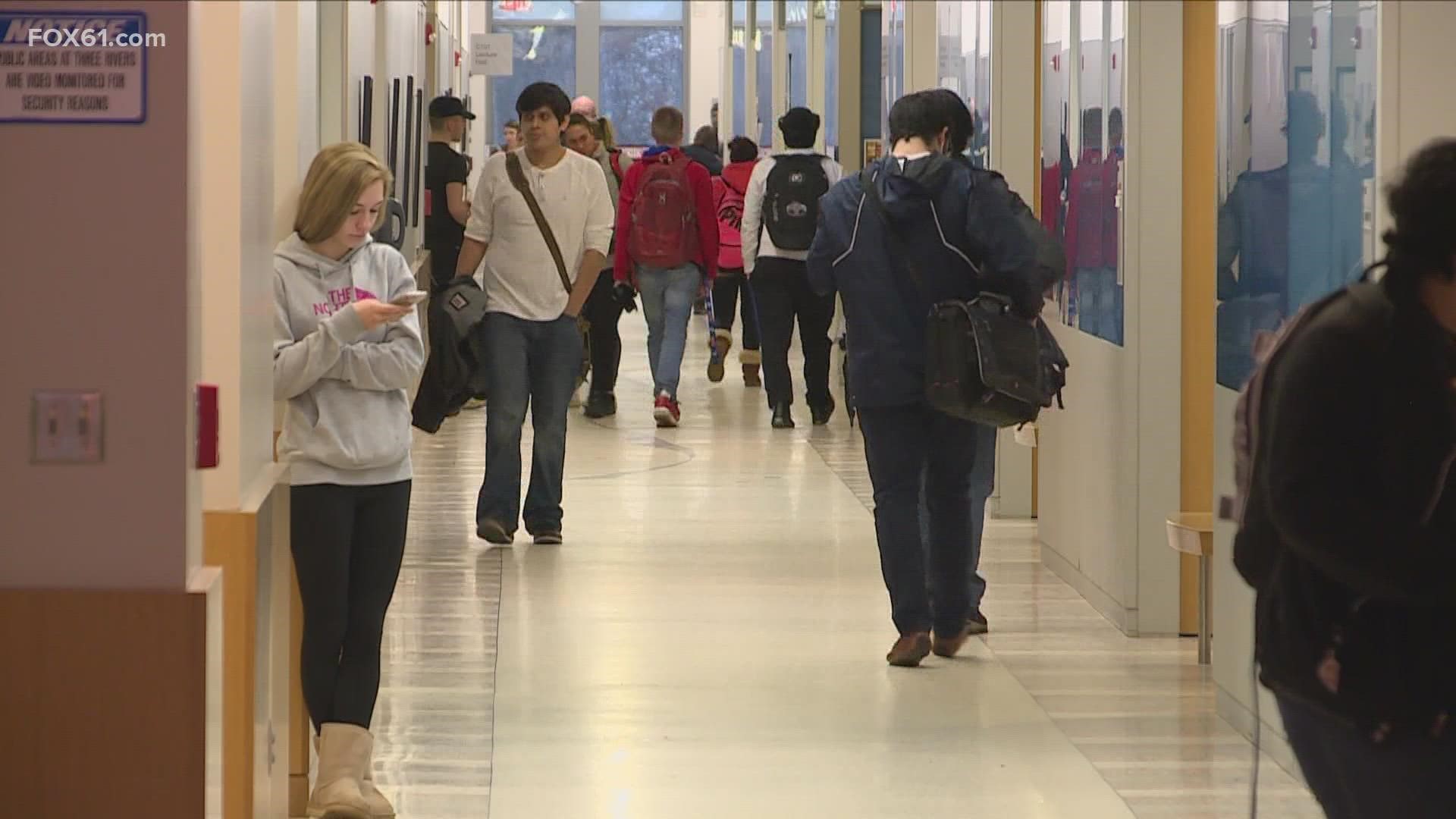CONNECTICUT, USA — Editor's note: Above video originally aired on March 9.
Student loan repayment has been extended once more, this time until August 31. The original moratorium on repayment was set to expire May 1, but President Biden's administration announced on April 6 that it will be extended.
But, regardless of when it starts again, it's never too early to plan out your budget to accommodate those loans.
The Trump administration initially suspended federal student loan payments in March 2020 and later extended it through January 2021. President Jo Biden has moved the extension to continue it twice, and the Education Department raised concerns about the effects of suddenly restarting payments, both for students and administratively within the department.
The extension of the loan moratorium comes as a decision, whether to erase large swaths of student debt altogether, is still on the table.
Some Democrats are pushing for mass forgiveness of debt. But Biden has questioned whether he has the authority for that kind of mass cancellation, and legal scholars differ on that. Earlier this year, Biden asked the Education and Justice departments to study the issue. Officials have said that work is still underway.
With mass forgiveness still in limbo, for now, it’s time to prepare to start paying those loans again.
Student loans can be a drag on our wallets, so if you can, try to pay them off as fast as possible. Finance company Nerd Wallet offered some suggestions.
One option to take is to refinance if you have good credit and a steady job. It may be harder after unemployment affected millions over the course of the pandemic, and many finding new careers.
However, if you’re able to, you can refinance your student loans faster without making extra payments.
Nerd Wallet said opting for a shorter term may increase your monthly payment, however, it can also help you pay the debt off faster and save money on interest.
You can also opt-in for bi-weekly payments. Again, month to month, it’ll be more money but it would shave time off of your repayment schedule and money off of your interest costs.
Nerd Wallet also suggests using “found money” like a tax return, if you have side businesses or any other way other income finds it way into your bank account.
Of course, the simplest way, even though it may take the longest, is to stick to your normal repayment plan.
But what if you can’t? What if, especially after the last two years in the pandemic, the funds to pay your loans aren’t there?
If you’re struggling with a federal student loan, the government’s student aid website has some tips:
You can change your repayment plan if your economic situation changes. The website offers a “loan simulator” which allows you to look at which plans you may be eligible for. It also helps estimate how much you would pay monthly and overall. They suggest doing this before contacting your loan servicer.
You can also apply for an income-driven plan if needed. Those plans set your monthly loan payment at an amount that is intended to be affordable, based on your income and family size, according to StudentAid.gov.
If other options aren’t panning out, you may qualify for a deferment or a forbearance from your federal loans. Currently, all loans are on pause until May 1 due to COVID-19 relief measures. You can learn more about deferment or forbearance here.
But what if you have a private loan? It’s relatively the same strategy.
According to San Francisco-based financial company SoFi, different lenders have their own terms that can trigger a student loan default.
The first thing the company recommends is considering separating your federal loans and private loans, saying federal loans often come with more protections and options for repayment plans.
SoFi also recommends talking to your lender about alternative student loan repayment plans.
They also say you can refinance, make a budget, or explore options of deferment and forbearance.
SoFi said that interest will continue to accrue during forbearance or deferment with private loans, and could end up costing more in the long run.
Nerd Wallet also offers similar advice when it comes to private student loans. They also stress that if you have to go the route of deferment or forbearance, it should be considered a last option due to the fact that the interest will still accrue over time.
The presence of sometimes overwhelming student loans can weigh on our minds, especially in this new normal that the pandemic created, and after not having to pay since March 2020.
There are tools out there to help people with payment options and what to do if the pandemic changed your money situation as payments start back up again.
--
Jennifer Glatz is a digital content producer at FOX61 News. She can be reached at jglatz@fox61.com.
Have a story idea or something on your mind you want to share? We want to hear from you! Email us at newstips@fox61.com
HERE ARE MORE WAYS TO GET FOX61 NEWS
Download the FOX61 News APP
iTunes: Click here to download
Google Play: Click here to download
Stream Live on ROKU: Add the channel from the ROKU store or by searching FOX61.
Steam Live on FIRE TV: Search ‘FOX61’ and click ‘Get’ to download.

